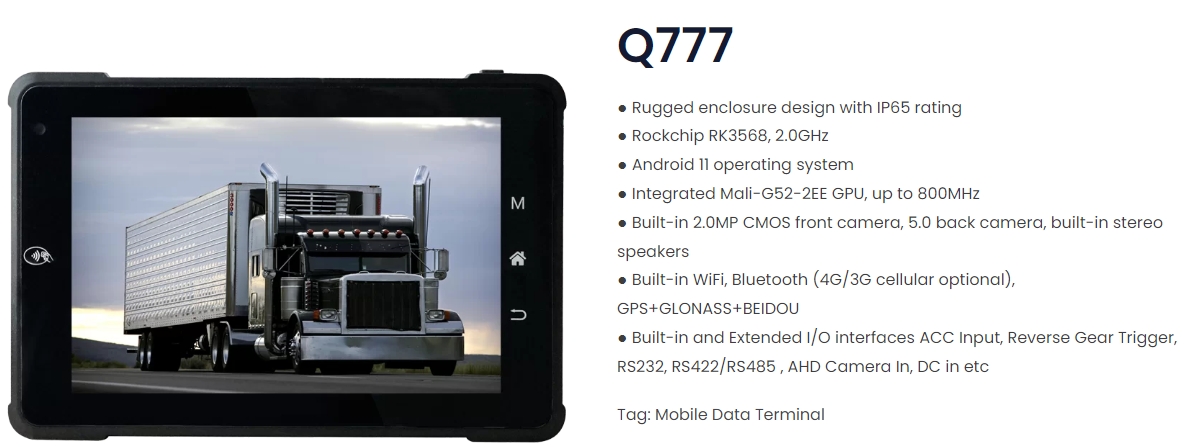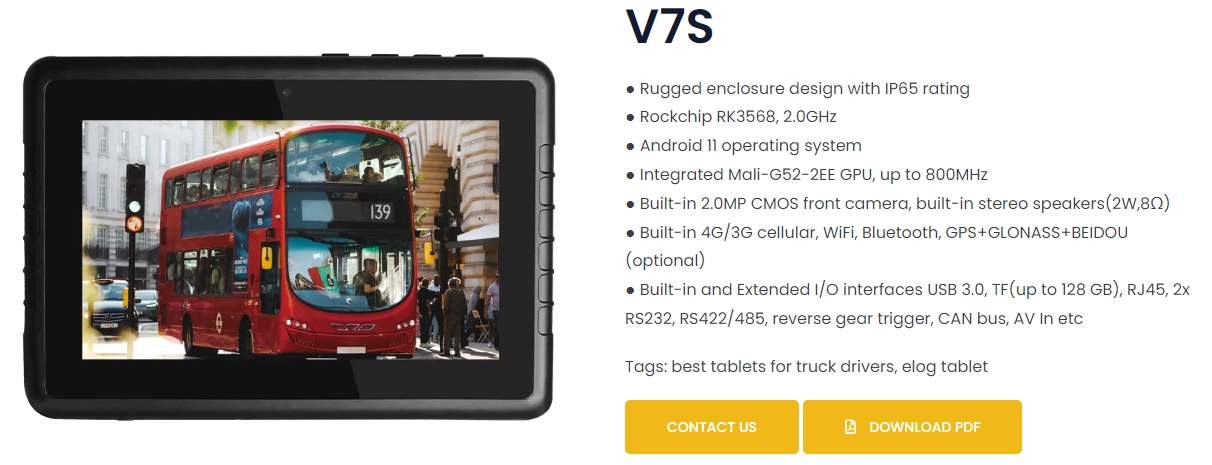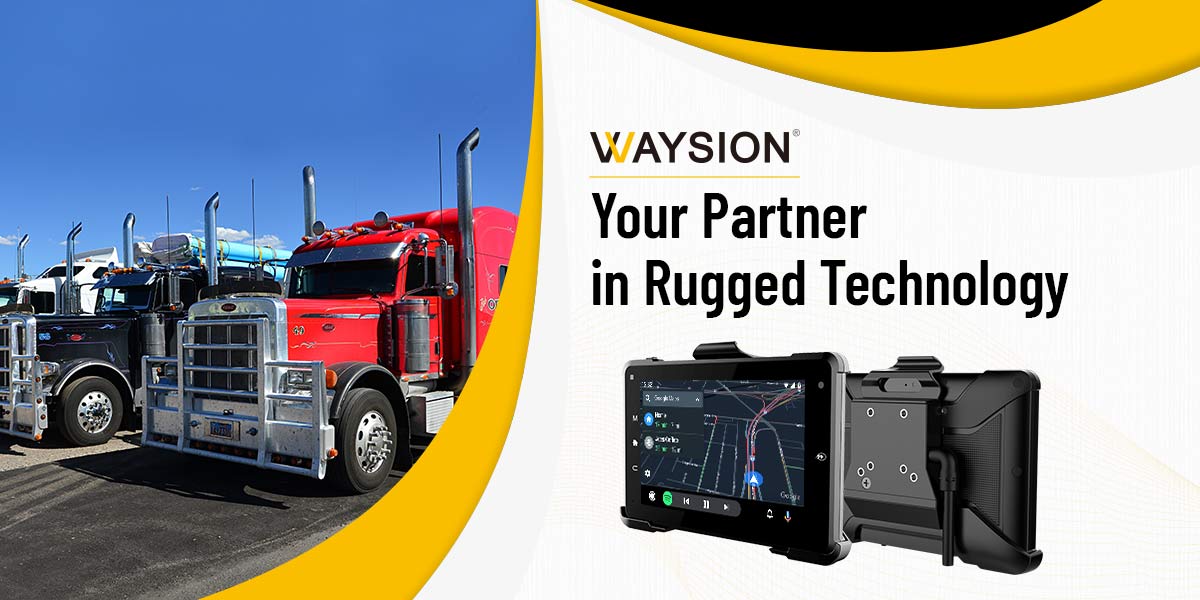In today’s fast-paced world, technology is an integral part of the automotive industry. Automotive tablets have revolutionized the way we interact with vehicles, enhancing functionality, safety, and convenience. This comprehensive guide aims to help you understand the key features, benefits, and considerations when choosing the best automotive tablet for your needs.

Understanding Automotive Tablets
Automotive tablets are rugged, durable devices designed specifically for use in vehicles. They combine the functionality of a traditional tablet with specialized features that make them suitable for automotive applications. These devices are commonly used in trucks, buses, taxis, school buses, police cars, and mining/construction/agriculture vehicles.
Key Features of Automotive Tablets
1. Durability and Ruggedness
One of the most crucial aspects of an automotive tablet is its durability. These tablets are built to withstand harsh conditions, including extreme temperatures, vibrations, and impacts. Look for tablets with MIL-STD-810G certification, which ensures military-grade ruggedness.
2. Display Quality
A high-quality display is essential for visibility and ease of use. Automotive tablets typically feature high-brightness screens with anti-glare coatings, making them readable even in direct sunlight. Opt for tablets with IPS or AMOLED displays for better color accuracy and viewing angles.
3. Connectivity Options
Reliable connectivity is vital for automotive applications. Ensure the tablet supports various connectivity options, including 4G LTE, Wi-Fi, Bluetooth, and GPS. Some tablets also offer OBD-II compatibility, allowing them to connect directly to the vehicle’s diagnostic system.
4. Battery Life
Long battery life is a critical factor for automotive tablets, especially for long-haul journeys. Look for tablets with high-capacity batteries that offer extended usage times. Additionally, features like quick-charging and hot-swappable batteries can be advantageous.
5. Mounting Solutions
Proper mounting solutions are essential for safe and convenient use of automotive tablets. Many tablets come with customizable mounting options, including RAM mounts and VESA mounts. Ensure the mounting system is compatible with your vehicle and provides secure attachment.

Benefits of Using Automotive Tablets
1. Enhanced Navigation and Fleet Management
Automotive tablets provide advanced navigation features, including real-time traffic updates, route optimization, and geofencing. These features are particularly beneficial for fleet management, helping companies track and manage their vehicles efficiently.
2. Improved Communication and Connectivity
With automotive tablets, drivers and fleet managers can stay connected seamlessly. Features like push-to-talk (PTT), video calls, and instant messaging enable real-time communication, enhancing coordination and safety.
3. Vehicle Diagnostics and Maintenance
Automotive tablets equipped with OBD-II interfaces can provide real-time diagnostic information, helping identify issues before they become major problems. This capability facilitates predictive maintenance, reducing downtime and repair costs.
4. Multimedia and Infotainment
For passenger vehicles, automotive tablets offer a wide range of multimedia and infotainment options. Passengers can enjoy movies, music, and games during their journey, enhancing their overall travel experience.
5. Compliance and Reporting
In industries like transportation and logistics, compliance with regulations is crucial. Automotive tablets can help drivers maintain accurate records, such as electronic logging devices (ELDs) for Hours of Service (HOS) compliance, ensuring adherence to legal requirements.

Top Considerations When Choosing an Automotive Tablet
1. Operating System
The choice of operating system can significantly impact the tablet’s usability and compatibility with other devices. Common operating systems for automotive tablets include Android, Windows, and Linux. Each has its advantages, so choose one that aligns with your specific needs and preferences.
2. Performance and Storage
Ensure the tablet has a powerful processor and sufficient RAM to handle demanding applications. Storage capacity is also important, especially if you need to store large amounts of data or multimedia content. Look for tablets with expandable storage options via microSD cards.
3. Security Features
Security is paramount in automotive applications. Look for tablets with robust security features such as encryption, secure boot, and remote management capabilities. This ensures that sensitive data remains protected and unauthorized access is prevented.
4. Customization and Expandability
Automotive tablets should offer flexibility in terms of customization and expandability. This includes support for external peripherals, such as barcode scanners, printers, and RFID readers. Customizable software solutions can also enhance the tablet’s functionality for specific applications.
5. Cost and Warranty
While cost is an important consideration, it should not be the sole deciding factor. Evaluate the tablet’s features, durability, and support options against its price. Additionally, consider the warranty and after-sales support provided by the manufacturer, as this can impact the overall value of your investment.
Leading Brands in Automotive Tablets
1. Waysion
Waysion is a reputable brand known for its high-quality rugged tablets. Their tablets are designed for various industries, including transportation, logistics, and construction. Waysion tablets offer robust performance, advanced connectivity, and excellent durability, making them a top choice for automotive applications.
2. Getac
Getac is renowned for its rugged computing solutions. Their automotive tablets are built to withstand extreme conditions and are equipped with advanced features such as high-brightness displays, extensive connectivity options, and long battery life.
3. Panasonic Toughbook
Panasonic Toughbook is a leading name in rugged computing. Their automotive tablets are known for their exceptional durability, advanced security features, and comprehensive support options. Toughbook tablets are ideal for demanding automotive environments.
4. Zebra Technologies
Zebra Technologies offers a range of rugged tablets designed for automotive use. Their tablets are equipped with high-performance processors, customizable software solutions, and versatile mounting options, making them suitable for various applications.
5. Dell Rugged Tablets
Dell’s rugged tablets are built to deliver reliable performance in harsh environments. With features like MIL-STD-810G certification, extensive connectivity options, and robust security, Dell rugged tablets are a solid choice for automotive applications.
Conclusion
Choosing the best automotive tablet involves considering various factors, including durability, display quality, connectivity, and performance. By understanding the key features and benefits of these devices, you can make an informed decision that meets your specific needs. Whether you’re in transportation, logistics, construction, or any other industry, an automotive tablet can enhance efficiency, safety, and productivity.
评论
发表评论